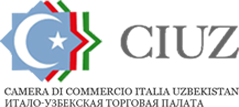The first EU – Central Asia summit concluded today in Samarkand, with the participation of the leaders of Kazakhstan, Kyrgyzstan, Tajikistan, Turkmenistan, and Uzbekistan, along with European Commission President Ursula von der Leyen and European Council President António Costa.
The summit took place in a context of strengthening high-level relations between the EU and the Central Asian region, following the 20th EU – Central Asia Ministerial Meeting, held in Ashgabat on March 25.
Uzbek President Shavkat Mirziyoyev opened the summit by highlighting the strengthening trade relations between Uzbekistan and Europe, emphasizing the established presence of companies such as Total, Siemens, Airbus, and BASF in the country.
Mirziyoyev proposed several initiatives to consolidate regional cooperation with the EU, including the adoption of a comprehensive Partnership and Cooperation Agreement between the two parties, the establishment of a “Central Asia – EU” Interparliamentary Forum (with its first meeting scheduled in Uzbekistan this autumn), and regular meetings between foreign ministers. Lastly, he announced the development of a regional industrial hub in Uzbekistan, specifically dedicated to European companies.
At the end of the summit, a joint declaration was issued by the five Central Asian countries and the EU, announcing as a key point the strengthening of EU-Central Asia relations, elevating them to a strategic partnership. The document sets a common goal of enhancing cooperation in trade and investment by organizing recurring economic events and developing joint sustainable projects, in line with the EU’s Global Gateway Strategy for foreign investments.
In this regard, Von der Leyen announced a €12 billion investment package, outlining in her speech the four priority areas for investment in Central Asia:
Transport and infrastructure: with a particular focus on developing the Middle Corridor as the preferred trade route, as it would significantly reduce travel time to just 15 days—almost half compared to the northern route. This requires joint efforts to ensure stability and security in the South Caucasus. Von der Leyen had already stressed the importance of this project during her speech at the European Economic Days, sponsored by CIUZ, in November 2024.
Critical raw materials: The EU aims to become a key partner in developing the local industry, not only in extraction but also in processing and refining. This approach will create jobs, generate added value for the local industry, and promote the opening of research centers and workforce training, fostering a long-term partnership. In this regard, the EU plans to extend the existing cooperation with Kazakhstan and Uzbekistan (through already signed Memoranda of Understanding) to the entire Central Asian region with the signing of a Joint Declaration of Intent on critical raw materials.
Digital connectivity cooperation: by promoting advanced digital infrastructure and strengthening communication networks between Europe and Central Asia.
Clean energy: Central Asia is rich in renewable energy sources, with the potential to meet both domestic demand and clean energy exports. The importance of this sector was further emphasized by Von der Leyen and Costa’s participation in the opening of the Samarkand International Climate Forum today, on the sidelines of the summit.
Below is the full speech by President Von der Leyen.
Today, we open a new chapter in the long-standing friendship between Europe and Central Asia.
With a new Strategic Partnership between our regions.
€12 billion in Global Gateway investments will support our shared priorities ↓ https://t.co/ZcnMSAyyWB— Ursula von der Leyen (@vonderleyen) April 4, 2025
For additional information, please contact CIUZ’s secretariat at the following address:
Samantha Rampini
Chamber of Commerce Italy-Uzbekistan
Via Monte Rosa, 93
20149 Milano
cell. +39 349 8847924


